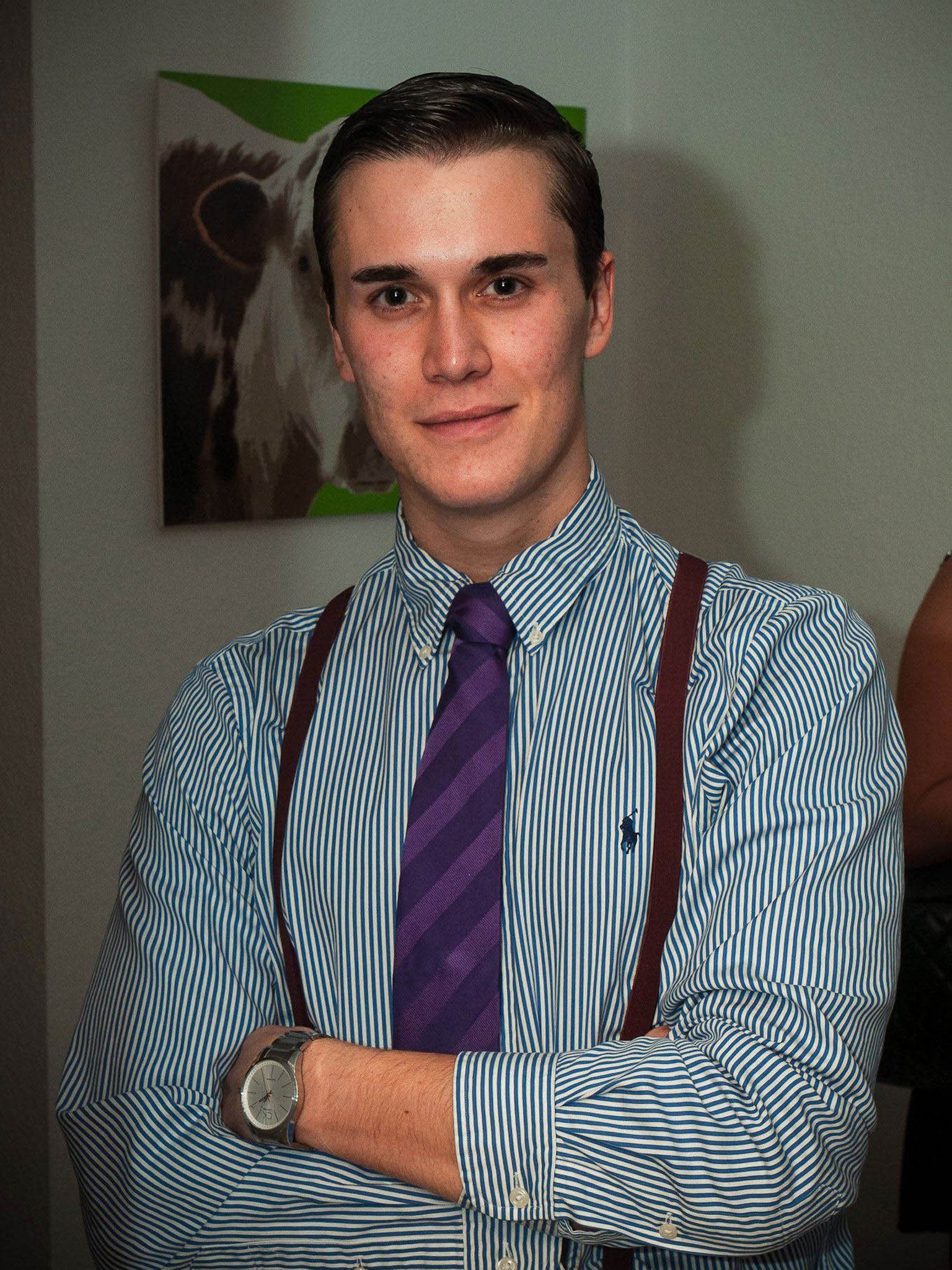Slavery in the City: Death of 21-year-old intern Moritz Erhardt at Merrill Lynch sparks furore over long hours and macho culture at banks
Young German worked until 6am for three consecutive days before collapse at home in east London

Your support helps us to tell the story
From reproductive rights to climate change to Big Tech, The Independent is on the ground when the story is developing. Whether it's investigating the financials of Elon Musk's pro-Trump PAC or producing our latest documentary, 'The A Word', which shines a light on the American women fighting for reproductive rights, we know how important it is to parse out the facts from the messaging.
At such a critical moment in US history, we need reporters on the ground. Your donation allows us to keep sending journalists to speak to both sides of the story.
The Independent is trusted by Americans across the entire political spectrum. And unlike many other quality news outlets, we choose not to lock Americans out of our reporting and analysis with paywalls. We believe quality journalism should be available to everyone, paid for by those who can afford it.
Your support makes all the difference.Serious concerns have been raised tonight about the punishing hours endured by interns at City investment banks following the death of a young Bank of America Merrill Lynch employee.
Moritz Erhardt, 21, was nearing the end of a seven-week internship in London when he collapsed at home after working until 6am for three days in a row.
His body was discovered by his flatmates. The circumstances of his death are unknown, but police are not treating them as suspicious. Some reports suggested that Mr Erhardt, from Freiburg, south-west Germany, was epileptic.
Around 300 interns working at various banks stay at the Claredale House student accommodation complex in Bethnal Green in east London for between seven and 10 weeks over the summer. One intern, who did not want to be named, told The Independent those in Mr Erhardt’s investing banking division group faced the longest hours.
He said: “We all work long hours, but the guys working regularly until 3am or 4am are those in investment banking. People working in markets will have to be in at 6am but not stay as late, so what time you can leave the office depends on your division.
“You’re only doing it for up to 10 weeks so there’s a general acceptance of it. I see many people wandering around, blurry-eyed and drinking caffeine to get through but people don’t complain because the potential rewards are so great. We’re competing for some very well-paid jobs.”
Another intern living at Claredale claimed that Mr Erhardt, who had been earning £2,700 a month or £45,000 pro rata, collapsed from exhaustion. “He apparently pulled eight all-nighters in two weeks. They get you working crazy hours and maybe it was just too much for him in the end,” they said.
Users of the popular finance blog wallstreetoasis.com insisted Mr Erhardt regularly worked long hours, with his final three days consisting of 21-hour stints in the office. One said: “He was found dead in the shower by his flatmate. Intern at BAML who went home at 6am three days in a row.”
Mr Erhardt was found last Thursday around 8.30pm and was pronounced dead at the scene. His parents are believed to be in the UK where a post-mortem and inquest will now take place.
The London-based cardiologist Dr Aseem Malhotra spoke of the health risks to which young banking interns are exposed. He said: “Although we don’t know for sure what caused such a tragic death, we know that working excessive hours, especially night shifts, is an extra risk to health.
“Last year the BMJ [medical journal] published the largest and most comprehensive review of over two million people concluding that those working shifts and especially night shifts were at significantly increased risk of heart attack and stroke. It’s probably related to a combination of sleep deprivation and added stress.”
Bank of America Merrill Lynch said it could not comment on the claims about the hours that Mr Erhardt had been working. John McIvor, head of international communications at Merrill Lynch, said: “All the rumours and comments are just that. We will have to wait and see what the post-mortem examination says.” He added: “Our first thoughts are with his family and we send our condolences to them.”
Mr McIvor refused to say whether or not it was common for staff to work through the night. He said: “I have not got any comment to make on our work patterns.” But he added: “Do people in investment banking sometimes work long hours? Yes they do.”
Mr Erhardt appears to have been one of many interns caught on the so-called “magic roundabout” – a process whereby a taxi takes interns home, waits outside while they shower and change, then drives them back to the office to begin another long day.
FinanceInterns, a careers advice group, condemned the City’s long-hours culture. A spokesperson said: “Young people who jubilantly accept a summer internship thinking they’ve landed a chance at their dream job, find themselves declaring that, what should have been a summer full of hope, is in fact the ‘worst three months’ of their lives due to the exhausting combination of all-nighters, weekend work and the magic roundabout.
“In the toughest job-market experienced in recent times, competition is even higher. Consequently these talented, diligent, young people are ever more willing to work hours which more senior staff would not.”
Mr Erhardt studied business administration at the University of Michigan before attending WHU Otto Beisheim School of Management in Vallendar, Germany, where he was due to graduate next year. He had already completed placements at KPMG Consulting, Morgan Stanley, and in Deutsche Bank’s corporate finance division.
Additional reporting by Tony Paterson
Join our commenting forum
Join thought-provoking conversations, follow other Independent readers and see their replies
Comments